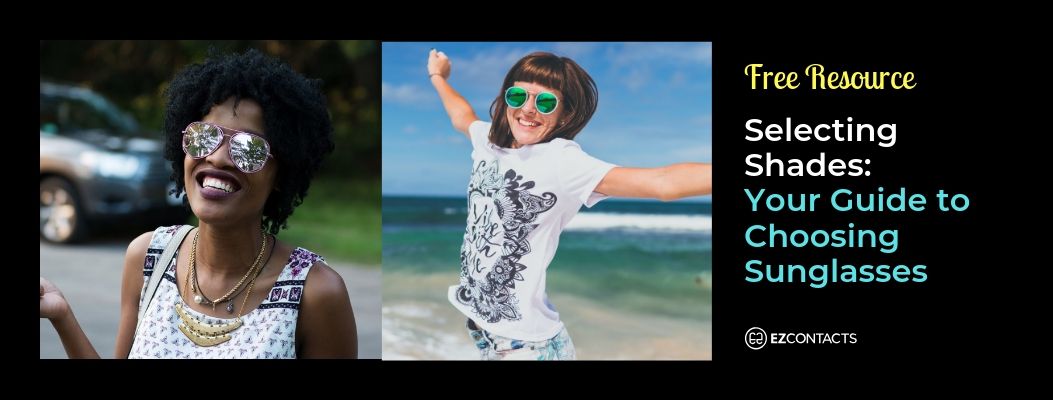14473 total views , 2 views today
Sunglasses with polarized lenses reduce the glare from bright light reflecting off of flat surfaces.
As such, many athletes attest to their effectiveness. They claim to see more clearly and then claim to perform better. See, many athletes state polarized lenses help them feel more relaxed because they don’t have to stress or strain to see.
Are polarized lenses right for you?
What are polarized lenses?
Vision is the perception of light being reflected off an object’s surface. Sometimes, the light scatters in various directions before it enters the eye, such as when light bounces off an uneven surface like a person’s face or a rock.
Other times, the light is more concentrated and enters the eye in a more direct way, as when light bounces off a smooth surface such as snow or water. The result, especially when looking at those smoother surfaces can be excessive glare and eye strain.
Polarized lenses work to reduce that.
Polarized lenses are coated with a special chemical to filter-out some of the excess light. The filter does so by only allowing in vertical light, and since glare usually enters the eye horizontally, polarized lenses block out some of the light entering directly into the eyes.
Understand, however, polarized lenses don’t protect your eyes from damage. Sunglasses with 100 percent UV protection do.
Polarized lenses do not necessarily offer full UV protection, but most do, so you’ll want to double check. The product description should state the lenses include UV400 protection (meaning 100% UV protection).
The best candidates for polarized lenses
People who work outside in bright sunlight are great candidates for polarized lenses, as are sports enthusiasts, especially those doing water or snow sports.
 The same goes for beachgoers who sunbathe with zeal. Polarized lenses can block out glare bouncing off the water and make for a more pleasant experience at the beach.
The same goes for beachgoers who sunbathe with zeal. Polarized lenses can block out glare bouncing off the water and make for a more pleasant experience at the beach.
Golfers also favor polarized lenses because, again, they reduce glare, but they are also able to see more contrast. In fact, pro-golfer Robert Allenby told Eyecare Business magazine, “The color helps me see the definition of the grass and covers all climates and light scenarios.”
If you’re someone who suffers from light sensitivity, then polarized lenses might be the way to go, as well, since over-exposure to glare and bright lights can cause headaches.
Note that transitional lenses—lenses that automatically adjust to lighting conditions—are polarized.
More on the headache issue…
Some people believe polarized lenses cause headaches or migraines. While there have been reports that the tint of certain windows take on a checkerboard pattern when viewed through polarized lenses and cause nausea, there is little evidence to suggest polarized lenses cause headaches.
The likely culprit is poor quality lenses that fail to efficiently block out enough light. Truth be told, polarized lenses are more likely to fend off headaches rather than cause them.
The downside of polarized lenses
While polarized lenses do indeed reduce glare in bright conditions, there can be a downside.
Polarized lenses tend to make it difficult to see LCD screens. Fishermen and boaters may experience issues if they need to look at any sort of digital screen while on the water. In fact, anyone who looks at LCD screens for long periods of time may want think twice about wearing polarized lenses.
Driving with polarized lenses
In the article, Polarized sunglasses: Best for reducing glare, author Erinn Morgan writes about the benefits of driving while wearing polarized lenses, “…they reduce glare-causing reflections from flat surfaces, such as the hoods of vehicles and light-colored pavement.”
There are others who believe wearing polarized lenses while driving should be avoided, especially while driving in low-light conditions. Ophthalmologist Andrew Iwach, discussed his skepticism surrounding so-called “night-vision glasses” in the article Night Driving Glasses May Hurt, Not Help on the American Academy of Ophthalmology’s website.
Night-vision glasses are covered with a yellow tint, but Iwach reminds, “…polarized lenses…are designed to limit the amount of light getting to the eye.” As a result, night vision glasses could actually make it harder to see at night, not easier.
Iwach writes, “When driving at night, the eyes need to adapt to darker natural conditions along with varied, fast-changing light, nearby and far away.” At night, polarized lenses hinder the ability to make those fast and varied adaptive changes.
If you’re still unsure whether or not polarized lenses are right for you, schedule an appointment with your eyecare specialist to discuss your options.
Learn more about selecting your sunglasses here…


